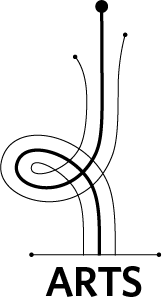
Talking the Walk
Spoken word artist and alumnus Guante explores what it means to be a man in 2018 and beyond.
Last September in suburban Minneapolis, at the annual national conference of the violence prevention group A Call to Men, Minneapolis-based poet, rapper, storyteller, and spoken word artist Guante (nee Kyle Tran Myhre) took the stage.
Dressed all in black, the 35-year-old Wisconsin native immediately grabbed the attention of the 300 conference-goers, who were assembled to confront issues of domestic violence and male stereotypes, with his brilliant spoken-word piece “Handshakes.”
“Do you ever feel trapped?” Guante (M.L.S. ’16) asked an invisible macho hand. “In the mornings, when you’re watching Sports Center or whatever, and downing that protein shake made with raw eggs and liquefied steak and Axe Body Spray, do you ever crush the glass by accident? Do you ever get tired of that voice in the back of your head, the one that sounds just like Denis Leary, telling you to constantly reaffirm that you’re a real man by catcalling women and eating enormous hamburgers and squeezing things really, really hard?”
Heads bobbed in recognition and rhythm. It was weeks before Hollywood producer Harvey Weinstein’s sexual abuse and assault of women reignited the #MeToo movement, and here was Guante giving his take as a man, poet, and feminist, though he may not be comfortable with that last part. Is Guante (whose wife, Uyenthi Tran Myhre, is assistant director of the Women’s Center at the University of Minnesota) OK with that label?
“I’m trying to write a poem about that,” says the full-time artist, taking a break at Five Watt Coffee in Minneapolis’s Kingfield neighborhood. “If I’m in a room with a bunch of people who are anti-feminist, I’ll be like, ‘Yeah. Of course I call myself feminist, and here’s why.’ But I don’t put it in my Twitter bio like, ‘I’m an awesome feminist man.’ It isn’t a hat you can wear, or a button you can put on. It’s a lens for understanding the world. So yes, I call myself a feminist—with an asterisk.”
He shows the same reluctance to go for the sound-bite when asked how he identifies his race. “I’m mixed, mostly Norwegian and Japanese, but that opens up a much more complex conversation about how that identity has shaped both my experience and my writing,” he says. “For example, when I write about race, I tend to mostly write about whiteness, because even if my blood/experience is mixed, people tend to see me as white, so I feel a responsibility to speak on that.”
Born in La Crosse and raised by a single mother, Guante graduated from the University of Wisconsin and became part of the hip-hop scene in Madison. Inspired by the work of Minneapolis hip-hop organizers and Minnesota Spoken Word Association cofounders Sha Cage and E.G. Bailey, he moved to Minneapolis in 2007 and quickly made a name for himself as a sharp-tongued, socially conscious artist.
“When E.G. and I met Guante in Madison, he was not only one of the most gifted wordsmiths but was so committed to bringing the next generation up,” says Sha Cage. “Part of us inviting him onto our indie label was about continuing to provide access to artists driven to growing community through the arts. It was evident that his heart was always rooted in social justice work.”
In 2016, Guante received his master’s from the U, with a focus on spoken word poetry, critical pedagogy, and social justice education. His final project focused on how the arts can be used to make social justice education more effective than simply, as he puts it, “here’s my PowerPoint on how not to sound racist.
“I look at all the work I do, talking about masculinity, socialization, gender violence, whiteness, white supremacy, capitalism, economic inequality—but I think at the end of the day, all those things share a common foundation in that I’m interested in creating more spaces for people to have deeper conversations about power,” he says. “Power in the sense of the powers that be that are held over us, but also the power that people have to push back and do something.”
Guante’s work has appeared in a range of media, including MSNBC, Huffington Post, Everyday Feminism, and Upworthy. He’s recorded a TEDx talk and appeared at colleges, universities, and conferences. He’s also the founder of the MN Activist Project and Hip-Hop Against Homophobia concert series. One reviewer dubbed Guante “part Cormac McCarthy, part Woody Guthrie, and part Public Enemy.”
A two-time National Poetry Slam champion, these days Guante is busy with readings from his first book, A Love Song, A Death Rattle, A Battle Cry, and hosting weekly open mic poetry slams at the Golden Thyme Café in St. Paul. He regularly performs for schools and businesses—all of which benefit from his streetwise, empathetic, and very much of-these-times perspective.
“I almost think that because things are so bad right now, people are hyper-focused on survival and just pushing through,” he says. “Whereas during the last administration or whatever, I’d be doing similar work but we could almost have deeper conversations about it, because it wasn’t so in-your-face all the time. Which is why I also think that 2018 and 2020 are going to be really interesting times to balance those conversations. How do you push back against the really obvious bad things that are happening while also doing it with a critical lens? Having nuanced conversations is not going to be a lot of fun over the next few years.”
Lucky for all of us, we’ll have Guante to make the conversation swing along with words, beats, and beauty.
Jim Walsh (B.A. ’90) is an award-winning author, journalist, writer, and songwriter in Minneapolis.

